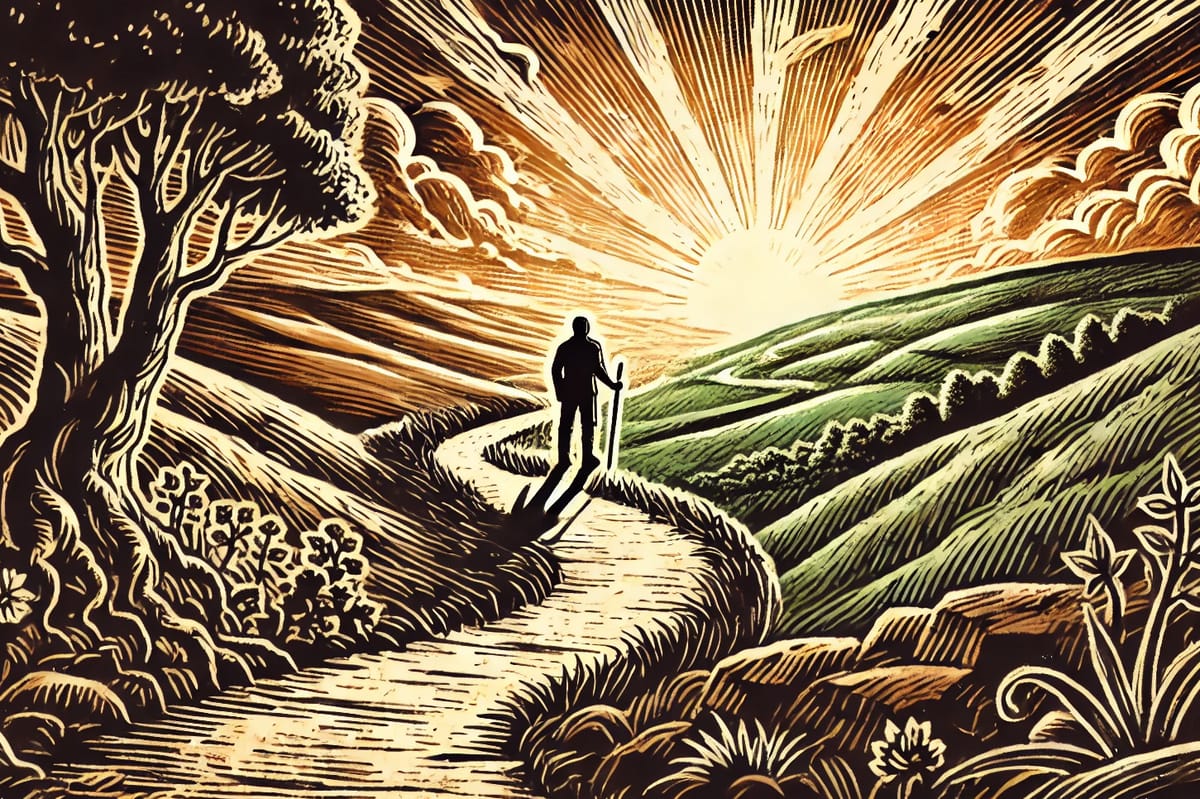A Reader's Guide for Man's Search for Meaning

The Wild Gentleman Book Club
Key Themes for Discussion
Responsibility and Choice
- Where in your life have you surrendered your power to choose, and what would reclaiming that responsibility look like?
Success vs. Meaning
"Success, like happiness, cannot be pursued; it must ensue."
- How does this quote from the book challenge our achievement-oriented culture?
- How do we balance ambition with the understanding that meaning comes from dedication to causes greater than ourselves?
Suffering and Growth
- When have you realized a positive or found dignity in the midst of difficulty?
- What unavoidable suffering in your life could be reframed as an opportunity for meaning-making?
Love and Connection
"Love is the ultimate and highest goal to which man can aspire."
- How do Frankl's approaches to love and connection challenge some stereotypes about masculinity and, specifically, the glorification of men's emotional independence (not needing others for emotional support, vulnerability as weakness, emotional self-sufficiency)?
- How does love—romantic, familial, fraternal—create meaning in life?
Discussion Questions
1. Did anything surprise you about Frankl's account of the concentration camps? (Compared to other literary, fictional, and non-fictional accounts, for instance.)
2. How does Frankl's concept of meaning differ from our culture's emphasis on happiness?
3. Which of the three sources of meaning (creative, experiential, attitudinal) resonates most with your current life situation?
4. Frankl writes about the "decent" versus "indecent" people in the camps, noting they existed among both prisoners and guards. What does this say about human nature and choice?
5. How does the concept of "Sunday neurosis"—the depression that sets in when the busy week ends—relate to modern work culture and masculine identity?
6. The author suggests that the question isn't "What do I expect from life?" but "What does life expect from me?" How does this reframing change your perspective?
7. Where do you experience the "existential vacuum" in your own life? What fills that void—constructively or destructively?
8. How does Frankl's emphasis on meaning through service and connection challenge or complement traditional masculine values?
9. What does a concept like "tragic optimism"—saying yes to life despite pain and guilt, finding meaning in suffering without glorifying it, choice of attitude as ultimate freedom—look like in the context of modern fatherhood, partnership, or professional life?
Printable PDF

